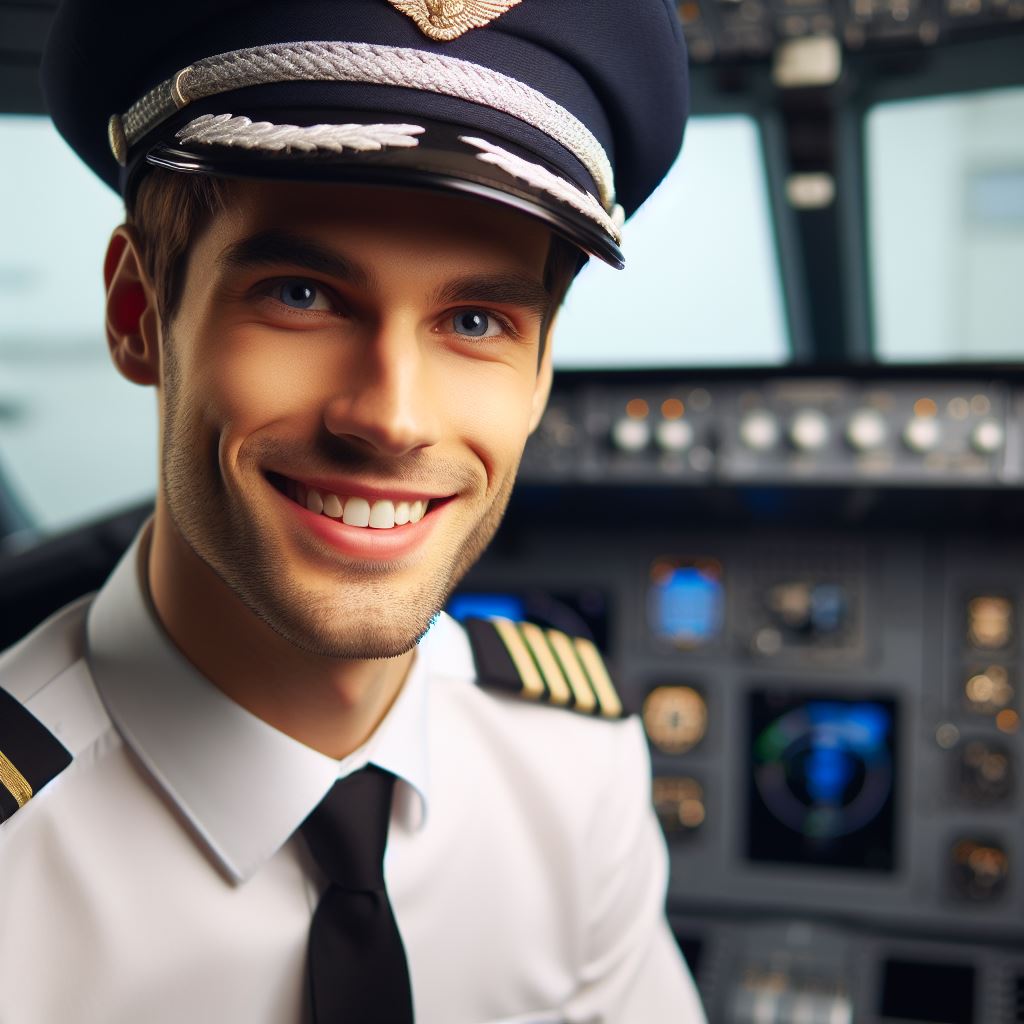Introduction
Brief overview of the aviation industry
The aviation industry, a marvel of modern engineering, links the world in a seamless network of travel.
- It encompasses airlines, aircraft manufacturers, airports, and regulatory bodies.
- Rapid globalization amplifies its significance, fostering trade, tourism, and cultural exchange.
- Technological advancements continually redefine aviation, enhancing safety, efficiency, and sustainability.
- From commercial jets to private charters, aviation offers diverse career paths.
- At its core, pilots stand as the guardians of this airborne realm.
Importance of pilots and related professions for global connectivity
Pilots and related professions serve as linchpins for global connectivity.
- They ensure safe and timely transportation of passengers and cargo.
- Their expertise navigates through adverse weather, congested airspaces, and technical challenges.
- Beyond flying, aviation professionals contribute to emergency response, aerial surveys, and humanitarian missions.
- Their roles extend to aviation management, air traffic control, and aircraft maintenance.
- By bridging distant destinations, they foster economic growth, cultural exchange, and international cooperation.
Basically, the aviation industry, propelled by skilled professionals like pilots, propels humanity forward, transcending borders and bringing the world closer together.
Becoming a Pilot
Educational requirements
To become a pilot, there are several steps that need to be completed in order to qualify for the necessary licensing.
Educational requirements for aspiring pilots typically include a minimum of a high school diploma or its equivalent, such as a General Education Development (GED) certificate.
Additionally, many airlines and flight schools may require applicants to have completed some college coursework or hold a bachelor’s degree in a related field.
Necessary training and certifications
Once the educational requirements have been met, individuals must undergo necessary training and certifications to become a licensed pilot.
This involves completing a flight training program, which includes both classroom instruction and hands-on experience flying an aircraft.
Flight training programs are offered by various aviation schools, colleges, and flight academies, and vary in length depending on the type of pilot certification being pursued.
Licensing process
After completing the required training, individuals must pass the licensing process administered by the Federal Aviation Administration (FAA).
This process includes a series of written exams covering topics such as aviation regulations, navigation, and flight procedures, as well as practical exams where applicants demonstrate their flying skills and knowledge in a real-world setting.
Once all exams have been successfully completed, applicants are issued a pilot’s license, which allows them to operate aircraft within certain limitations and restrictions.
Overall, becoming a pilot requires dedication, hard work, and a passion for flying.
By fulfilling the educational requirements, completing the necessary training and certifications, and successfully passing the licensing process, individuals can achieve their dream of soaring through the skies as a licensed pilot.
Read: Legal Careers: Professions Like Lawyer
Transform Your Career Today
Unlock a personalized career strategy that drives real results. Get tailored advice and a roadmap designed just for you.
Start NowTypes of Piloting Careers
Commercial pilots
Commercial pilots occupy a pivotal role in the aviation industry, ferrying passengers across vast distances with efficiency and safety.
These skilled professionals commandeer a variety of aircraft, ranging from small regional jets to large international airliners.
Their responsibilities encompass not only piloting the aircraft but also ensuring the comfort and well-being of passengers throughout the journey.
Operating commercial flights requires meticulous planning and execution.
Pilots must adhere to strict schedules while also remaining vigilant about weather conditions, air traffic, and other potential hazards.
They collaborate closely with air traffic controllers and ground staff to coordinate takeoffs, landings, and en-route navigation.
In addition to their technical skills, commercial pilots must possess exceptional communication and decision-making abilities.
They must adeptly manage any in-flight emergencies or deviations from the planned route, prioritizing the safety and security of passengers and crew above all else.
Cargo pilots
Cargo pilots play a vital role in global logistics, transporting goods and commodities to destinations around the world.
Unlike commercial pilots, who focus on passenger comfort, cargo pilots prioritize the timely and efficient delivery of freight.
They operate a diverse array of cargo aircraft, ranging from small turboprops to large freighter jets.
One of the key challenges faced by cargo pilots is navigating through the night sky.
Many cargo flights operate during overnight hours to maximize efficiency, requiring pilots to rely heavily on instruments and navigation systems to maintain course and avoid obstacles.
Cargo pilots also excel in managing complex logistics.
Transform Your LinkedIn into a Job Magnet
Picture recruiters reaching out to you daily. We craft personalized LinkedIn profiles that stand out, boosting your visibility in ways others can't. Elevate your career now.
Upgrade NowThey must carefully load and secure cargo within the aircraft, ensuring proper weight distribution and adherence to safety regulations.
Additionally, cargo pilots often handle specialized shipments, such as perishable goods or hazardous materials, requiring specialized training and attention to detail.
Despite the demanding nature of their work, cargo pilots find fulfillment in the crucial role they play in keeping global supply chains running smoothly.
Their dedication ensures that goods reach their destinations swiftly and reliably, supporting industries and communities worldwide.
Agricultural pilots
Agricultural pilots, often referred to as crop dusters, provide essential services to farmers and agricultural communities.
These skilled aviators specialize in aerial application, using airplanes or helicopters to spray crops with fertilizers, pesticides, and other agricultural chemicals.
Operating at low altitudes and close proximity to the ground, agricultural pilots face unique challenges in navigating their aircraft.
They must contend with obstacles such as power lines, trees, and uneven terrain, requiring precise maneuvering and spatial awareness.
In addition to their flying skills, agricultural pilots must possess a deep understanding of agronomy and crop management.
They work closely with farmers to develop spray plans tailored to specific crops and conditions, maximizing effectiveness while minimizing environmental impact.
Agricultural piloting is often a seasonal profession, with peak demand occurring during planting and harvesting seasons.
Despite the seasonal nature of their work, agricultural pilots play a crucial role in supporting food production and ensuring bountiful harvests for communities around the world.
Their expertise and dedication contribute to the sustainability and productivity of agricultural operations.
Flight instructors
Flight instructors serve as mentors and guides to aspiring pilots, imparting the knowledge and skills necessary to navigate the skies safely and confidently.
Craft a Resume That Tells Your Story
At American Profession Guide, we craft resumes and cover letters that tell your unique professional story. Stand out with documents tailored to your industry and showcase your strengths to land your dream job.
Email UsThese experienced aviators play a critical role in shaping the next generation of pilots, sharing their expertise through classroom instruction and hands-on flight training.
One of the primary responsibilities of flight instructors is to instill a strong foundation of aeronautical knowledge in their students.
They cover a wide range of subjects, including aerodynamics, navigation, meteorology, and aviation regulations, preparing students for the rigorous examinations required to obtain pilot certifications.
In addition to academic instruction, flight instructors provide practical flight training, guiding students through a series of maneuvers and flight exercises.
They emphasize the importance of situational awareness, decision-making, and effective communication, instilling in their students the confidence to handle any challenges they may encounter in the air.
Flight instructing requires patience, adaptability, and a passion for teaching.
Instructors must tailor their instruction to the individual learning styles and abilities of their students, ensuring that each aspiring pilot receives the personalized guidance and support they need to succeed.
Military pilots
Military pilots serve on the front lines of national defense, operating advanced fighter jets and other aircraft in support of military missions and operations.
These highly skilled aviators undergo rigorous training and selection processes, honing their abilities to excel in dynamic and demanding environments.
One of the key roles of military pilots is to maintain air superiority, engaging enemy aircraft and defending airspace against hostile incursions.
They execute precision maneuvers and employ advanced weaponry to neutralize threats and protect friendly forces on the ground.
Military pilots also play a vital role in reconnaissance and surveillance, gathering intelligence and monitoring enemy activities from the skies.
They use sophisticated sensors and imaging systems to detect and track targets, providing invaluable information to ground commanders and decision-makers.
In addition to combat operations, military pilots contribute to a wide range of humanitarian and disaster relief efforts.
They provide airlift support, medical evacuation, and search and rescue services in response to natural disasters, humanitarian crises, and other emergencies.
Despite the inherent risks and challenges of military flying, pilots are driven by a sense of duty, honor, and patriotism.
They embrace the opportunity to serve their country and make a difference in the world, demonstrating bravery, professionalism, and unwavering commitment in the skies.
Read: Medical Field Alternatives: Professions Like Doctor
Key Skills and Qualities for Pilots
Excellent communication skills
Pilots must possess a wide range of skills and qualities to excel in their profession.
Firstly, excellent communication skills are crucial for pilots to effectively communicate with air traffic control and crew members.
Quick decision-making abilities
Quick decision-making abilities are also essential for pilots as they often need to make split-second decisions in high-pressure situations.
Whether it’s dealing with inclement weather or mechanical failures, pilots must be able to think on their feet.
Precision and attention to detail
Precision and attention to detail are key traits that pilots must have to ensure the safety of their passengers and crew.
Pilots need to meticulously follow protocols and checklists to guarantee a smooth and safe flight.
Strong understanding of math and physics
Furthermore, a strong understanding of math and physics is vital for pilots to navigate through the skies effectively.
Pilots must be able to calculate flight routes, fuel consumption, and weight distribution accurately.
Physical and mental fitness
Lastly, physical and mental fitness are crucial for pilots to handle the demanding nature of their job.
Pilots need to stay focused and alert throughout long flights, as well as possess the physical stamina to handle the controls and cockpit equipment.
In essence, pilots require a unique set of skills and qualities to perform their job effectively.
From communication and decision-making to precision and fitness, being a pilot demands a diverse skill set and a dedication to excellence.
Read: Teaching Alternatives: Other Educative Professions

Challenges and Rewards of a Piloting Career
The challenges like irregular hours and stress
As a pilot, one of the biggest challenges you will face is the irregular working hours.
It can be difficult to maintain a work-life balance when you are away from home frequently.
In addition, the stress of being responsible for the safety of passengers can be overwhelming at times.
Rewards like high salary potential and travel opportunities
However, despite these challenges, a career in piloting also comes with many rewards.
One of the most enticing aspects of being a pilot is the high salary potential.
Pilots are typically well-compensated for their skills and experience, making it a lucrative career choice.
Furthermore, the travel opportunities that come with being a pilot are hard to beat.
You will have the chance to see the world and explore new destinations while on the job.
Not many professions offer the same level of excitement and adventure as piloting.
Overall, while a career in piloting may come with its fair share of challenges, the rewards make it all worth it in the end.
Read: Professions Like Architecture: Creative Careers
Related Aviation Careers
In addition to being a pilot, there are several other exciting aviation careers that you may want to consider:
Air traffic controllers
Air traffic controllers are responsible for managing the flow of air traffic in and out of airports, ensuring that planes are able to take off and land safely and on time.
They must have excellent communication and problem-solving skills, as well as the ability to work well under pressure.
Aircraft mechanics
Aircraft mechanics play a critical role in ensuring the safety and reliability of aircraft.
They inspect, repair, and maintain airplanes to ensure that they are in top working condition.
Aircraft mechanics must have excellent technical skills and attention to detail to carry out their duties effectively.
Flight attendants
Flight attendants are responsible for ensuring the comfort and safety of passengers during flights.
They provide customer service, assist with emergency procedures, and ensure that passengers comply with safety regulations.
Flight attendants must have excellent communication and interpersonal skills, as well as the ability to remain calm under pressure.
Aviation management
Aviation management professionals oversee various aspects of airline operations, including scheduling, budgeting, and safety regulations.
They work to ensure that airlines run smoothly and efficiently, while also keeping a close eye on industry trends and developments.
Aviation management professionals must have strong leadership and organizational skills, as well as a deep understanding of the aviation industry.
Each of these professions offers unique opportunities for individuals interested in the aviation industry.
Whether you prefer working in a fast-paced environment, ensuring the safety and security of passengers, or managing complex operations, there is a career that fits your interests and skills in aviation.
Overall, careers in aviation offer a wide range of opportunities for individuals who are passionate about flying and the aviation industry.
Whether you are interested in piloting an aircraft, managing airline operations, or ensuring the safety of passengers, there is a career in aviation that is perfect for you.
So, if you dream of flying high, consider exploring these exciting aviation careers to find the one that best suits your interests and abilities.
Future of Piloting
The impact of technology on piloting
In the ever-evolving realm of aviation, technology plays an increasingly pivotal role, revolutionizing the landscape of piloting.
Advanced avionics systems, equipped with state-of-the-art navigation aids and communication tools, have significantly enhanced the safety and efficiency of air travel.
These systems provide pilots with real-time data and intuitive interfaces, streamlining the process of flight planning, navigation, and aircraft management.
Moreover, automation has emerged as a transformative force in piloting.
From autopilot systems to advanced flight management systems, automation has the potential to alleviate pilot workload and reduce the margin for error.
However, while automation offers undeniable benefits, it also necessitates a reevaluation of pilot training and skillsets.
Pilots must not only possess a deep understanding of traditional flying techniques but also be proficient in interfacing with and overseeing automated systems, ensuring a harmonious integration of human expertise and technological innovation.
Demand for pilots in the future
Despite the increasing integration of automation in aviation, the demand for skilled pilots is projected to remain robust in the coming years.
The rapid expansion of global air travel, driven by factors such as population growth, urbanization, and economic development, is expected to fuel the need for additional pilots across various sectors of the industry.
Moreover, the emergence of new markets and the continuous modernization of airline fleets are creating diverse opportunities for aspiring aviators.
Furthermore, specialized sectors within the aviation industry, such as cargo and private aviation, are experiencing substantial growth, further augmenting the demand for pilots.
Cargo carriers, in particular, rely heavily on skilled aviators to ensure the timely and efficient transportation of goods across vast distances.
Similarly, the affluent clientele of private aviation demand exemplary service and safety standards, necessitating a proficient cadre of pilots to cater to their needs.
The role of pilots in space exploration
As humanity sets its sights on the cosmos, the role of pilots extends beyond the confines of Earth’s atmosphere.
Pilots are poised to become integral participants in the next frontier of exploration: space.
With the development of spacecraft capable of ferrying humans beyond low Earth orbit, the need for skilled pilots to operate these vessels becomes increasingly evident.
In the realm of space exploration, pilots are tasked with navigating the complexities of celestial mechanics, orbital dynamics, and extraterrestrial environments.
Their expertise in spacecraft operation, coupled with their adaptability and problem-solving abilities, enables them to execute precise maneuvers and ensure the safety and success of missions.
Moreover, as artificial intelligence and automation technologies are integrated into spaceflight systems, pilots will continue to play a crucial role in providing human intuition and oversight, complementing the capabilities of AI.
In a nutshell, the future of piloting holds exciting prospects, from the skies to the stars.
Whether navigating through Earth’s atmosphere or charting new frontiers in space, pilots remain at the forefront of exploration, embodying the spirit of adventure and pushing the boundaries of human achievement.
Conclusion
Piloting offers thrilling challenges and unmatched freedom.
It’s a career path marked by:
- Adventure: Every flight presents new destinations and experiences.
- Responsibility: Pilots ensure the safety of passengers and crew.
- Professional Growth: Continuous learning and skill development are integral.
- Global Connectivity: Aviation connects people and cultures worldwide.
- Technical Mastery: Mastering complex aircraft systems is intellectually stimulating.
- Leadership: Pilots lead teams in dynamic, high-pressure environments.
- Innovation: Aviation drives technological advancements and efficiency.
- Lifestyle: Flexible schedules allow for work-life balance and travel opportunities.
Exploring aviation promises:
- Diverse Opportunities: From commercial airlines to private jets, the options are vast.
- Passion Pursuit: Following your love for flying can lead to a fulfilling career.
- Community: Joining a network of like-minded professionals fosters camaraderie.
- Inspiration: Being part of an industry that pushes boundaries is inspiring.
- Impact: Aviation professionals contribute to global mobility and commerce.
- Adaptability: The field evolves, offering room for growth and innovation.
- Legacy: Pilots leave behind a legacy of safe travels and memorable journeys.
In closing, choosing a career in piloting means embracing an exhilarating journey filled with challenges, growth, and endless possibilities.
So, if you’ve ever dreamed of taking to the skies, now is the time to soar.




